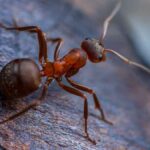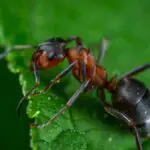Ah, ants. They’re the tiny, pesky pests that invade our homes, making us feel helpless and frustrated.
But don’t despair! While it may seem like these little critters have the upper hand, there are a few simple steps that you can take to prevent them from taking over your house.
In this article, I’ll share my best tips and tricks on keeping those pesky ants at bay.
First, you’ll want to ensure that your home is free of crumbs and other potential ant food sources. This means vacuuming and mopping regularly and making sure to clean up any spills or messes right away. You should seal any cracks or crevices in your walls or floors and caulk around windows and doors.
Another thing you can do to prevent ants from entering your home is to set up an ant barrier outside your house. You can do this by applying a liquid insecticide around the perimeter of your property, or you can use an ant bait trap to lure them away from your home.
Last but not least, you should also ensure that you keep your outdoor areas clean and tidy. This means regularly cleaning up any fallen leaves and debris and trimming back any overgrown plants.
If you follow these simple steps, you’ll be well on your way to keeping those pesky ants out of your home. So don’t worry – with a bit of prevention and some ant-fighting strategies, you can protect your home from these unwanted guests.
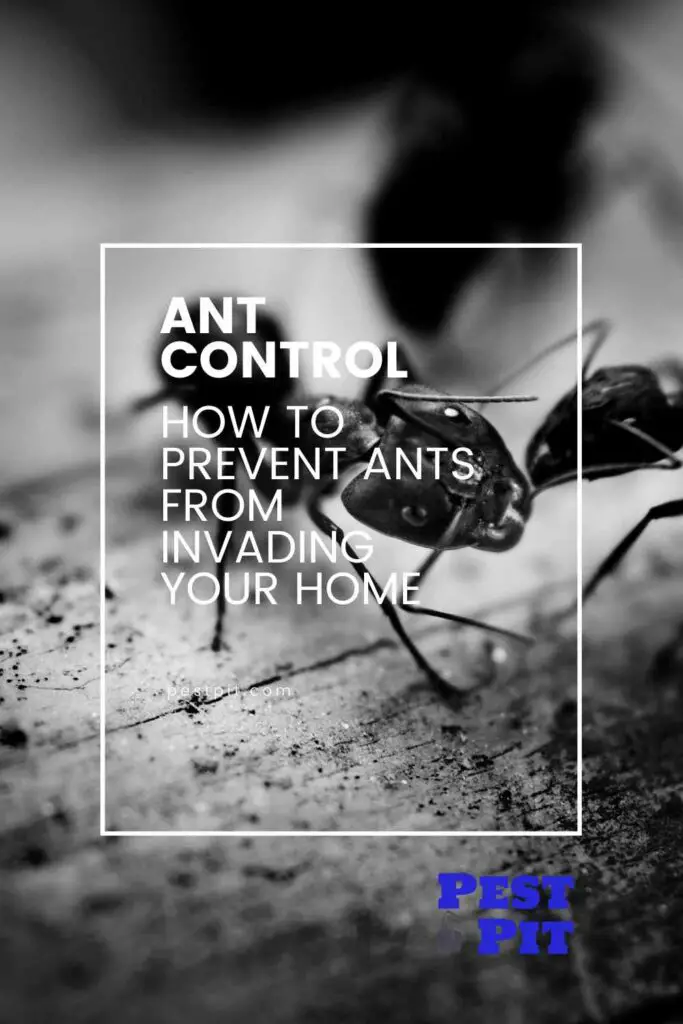
Identifying Entry Points
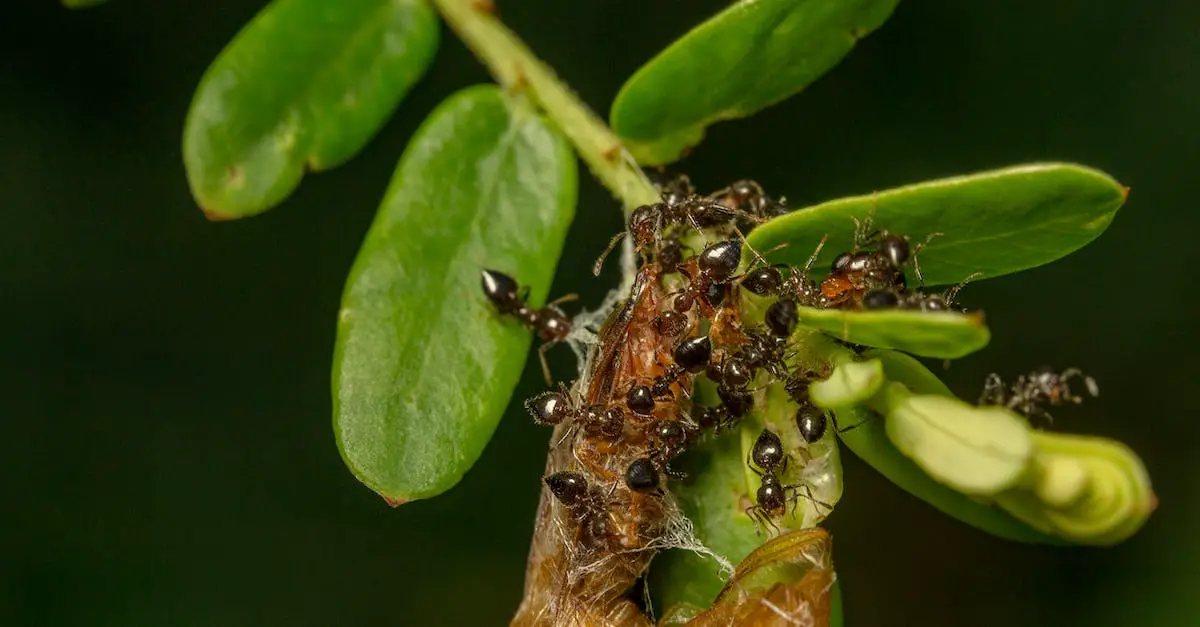
Identifying any entry points ants may be using to get inside your home is important. As the old saying goes, an ounce of prevention is worth a pound of cure!
Here’s how to get started:
- Check for cracks around windows, doors, or walls. Ants can squeeze through incredibly small gaps, so inspect for cracks or crevices that need to be sealed.
- Inspect the perimeter of your home. Look for any signs of ants coming in from outside, such as a mound of dirt or a trail of ants.
- Check any existing caulking. Check around windows, doors, and any other areas where you have caulked, as this can become cracked over time.
- Check pipes and vents. Ants can enter through vents or pipes, so check these areas to ensure they’re sealed.
- Inspect the roof. If you have a shingled roof, look for any signs of ants coming in from the roof.
By taking a few simple steps to identify any potential entry points for ants, you can help prevent them from invading your home.
Setting Up Barriers
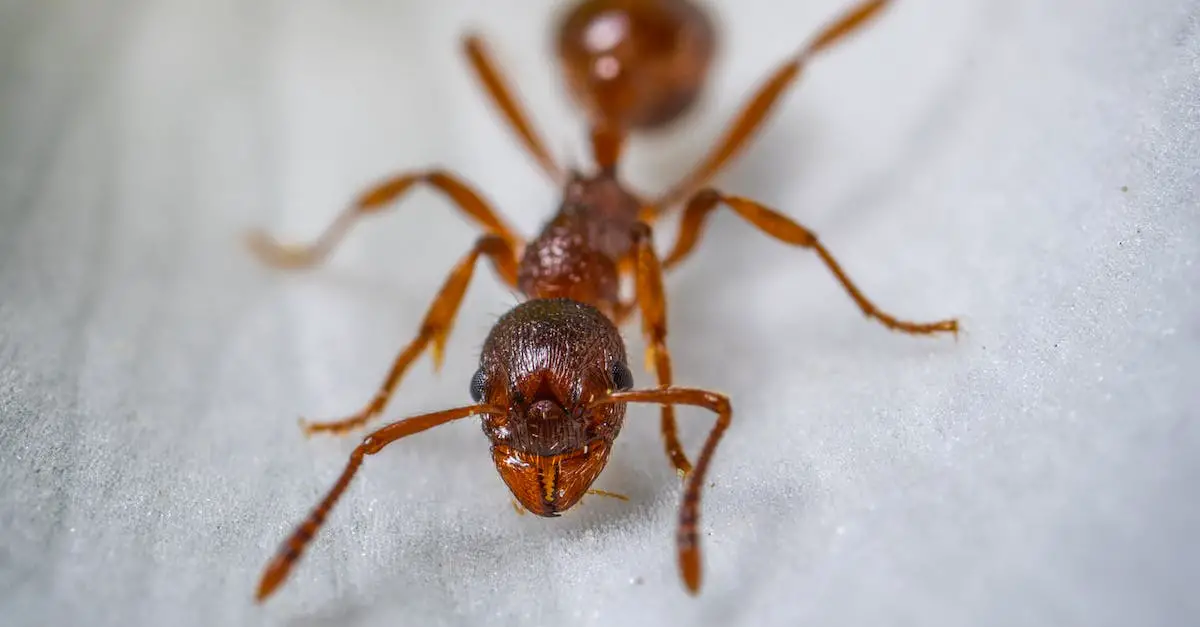
Are you looking for a way to keep ants from getting into your home? Setting up barriers is one of the best strategies for ant prevention. Here are some of my top tips for creating ant-proof walls:
- Seal Up Cracks and Crevices: Ants can squeeze through the tiniest of openings, so it’s important to seal up any cracks or crevices around your windows, doors, and foundation. Use caulk or weather stripping to fill in any existing cracks, and make sure your windows and doors close tightly.
- Lay Down a Line of Petroleum Jelly: Ants hate petroleum jelly, so laying down a line around doorways and windows can help keep them away. Make sure to reapply the jelly every few days and immediately wipe up any spills.
- Place Sticky Traps: Sticky traps are a great way to keep ants at bay. Place a few around potential entry points and keep an eye on them. You’ll know you must reinforce your barriers whenever you see a few ants stuck in the trap.
- Spread Powdered Detergent: Sprinkling powdered detergent around your doors and windows can help keep ants away. The detergent will be a barrier and keep the ants from getting in. Make sure to reapply it every few days.
- Set Up Ant Baits: Ant baits can be a great way to keep ants out of your home. Place a few around potential entry points and wait for the ants to take the bait. Once they do, they will take the bait back to their nest, which will help keep them away from your home.
These are just a few strategies I use to keep ants from getting into homes. If you follow these tips, you can keep ants from invading your home. Good luck, and remember: if all else fails, call a pest control expert!
Keeping the House Clean
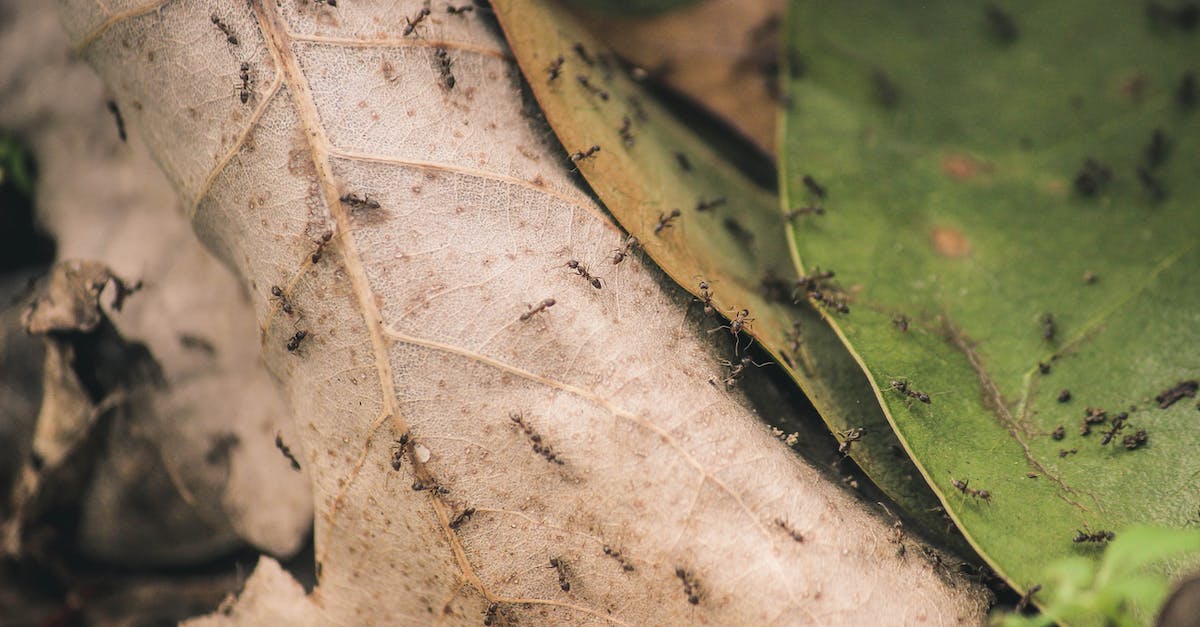
Keeping your house clean is one of the most important steps in preventing ants from invading your home. Sure, it may be a bit of a chore, but it’s also a great way to keep your home ant-free!
- Wipe down surfaces regularly. Dust, crumbs, and other debris attract ants, so keeping your counters, floors, and other surfaces clean is important.
- Vacuum carpets and upholstered furniture. Your vacuum cleaner can help you eliminate hidden food particles and other ants’ attractants, so use it often.
- Don’t forget about other areas. Don’t forget to clean the often overlooked areas, such as behind and underneath furniture, closets, and basements.
- Don’t leave food out. Ants always look for food, so leave leftovers and keep containers sealed.
- Clean up spills quickly. Spilled food, drinks, and other liquids are a surefire way to attract ants, so clean up spills as soon as possible.
- Empty garbage cans regularly. Garbage cans can be a breeding ground for ants, so empty them regularly and keep them clean.
Following these simple steps, you’ll be on your way to a home free of ants!
Eliminating Food Sources

You can’t keep ants out of your home if they have a steady food source. The first step is to eliminate any potential food sources to prevent ants from invading your home.
- Clean regularly. Crumbs, spills, and other food sources can attract ants, so clean up after eating and take out the trash regularly. Be sure to vacuum and mop floors and wipe down countertops as well.
- Store food properly. Always store food in airtight containers and keep them off the floor and away from windows and doors. Put away leftovers in the fridge and throw out any food left out for too long.
- Remove any standing water. Ants love moisture, so if you have any leaking pipes or standing water, get them fixed as soon as possible.
- Seal cracks and crevices. Ants can squeeze into even the tiniest of cracks and crevices, so seal up any cracks or gaps in your home.
Following these steps can help keep ants away from your home and make it less attractive to them.
Utilizing Natural Repellents
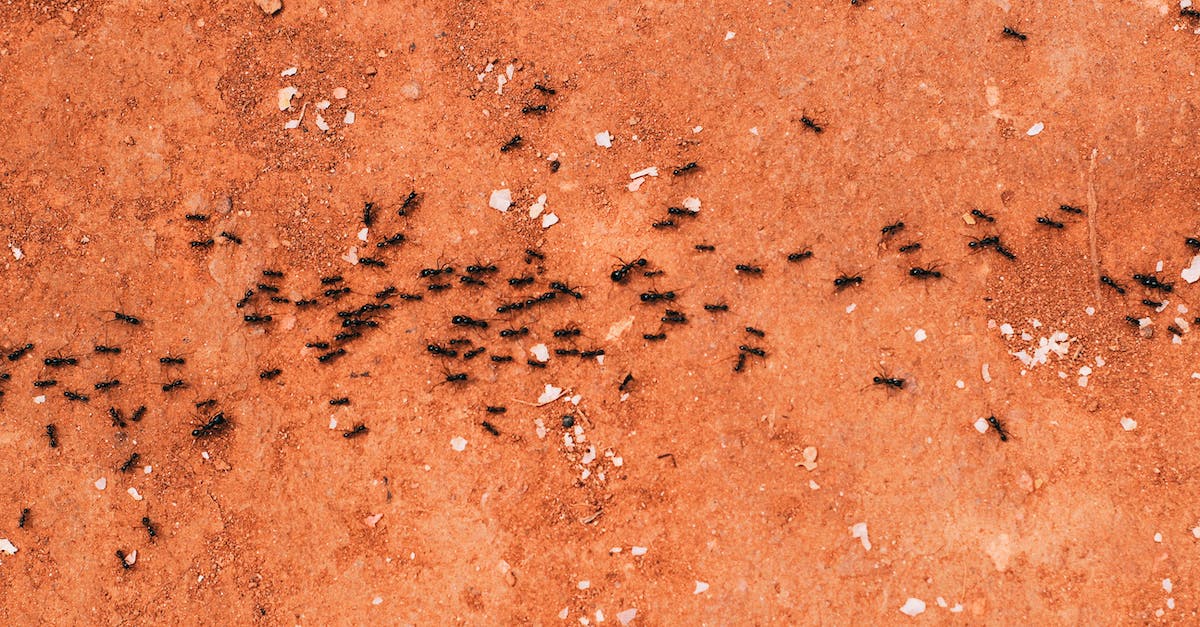
You don’t have to use toxic chemicals to keep ants away! Believe it or not, there are natural repellents that you can use to keep your home ant-free. Here are some of the most effective ones:
- Essential Oils: Spraying a mixture of essential oils like clove, lavender, mint, or tea tree oil around your home can be a great natural ant repellent. You can also sprinkle a few drops of these oils around entry points, like windowsills and door frames.
- Borax: Sprinkling borax near entry points is another effective way to keep ants away. Just be sure to keep it away from kids and pets.
- Coffee Grounds: Ants don’t like the smell of coffee grounds. Sprinkling them around entry points can be a great way to keep the critters at bay.
- Vinegar: When mixed with water and sprayed around the perimeter of your home, it can help repel ants.
- Diatomaceous Earth: Sprinkling diatomaceous earth around your home can help deter ants. Just be sure to keep it away from kids and pets.
Taking some of these natural steps can help prevent ants from invading your home. Now go forth, ant-free!
Applying Pesticides
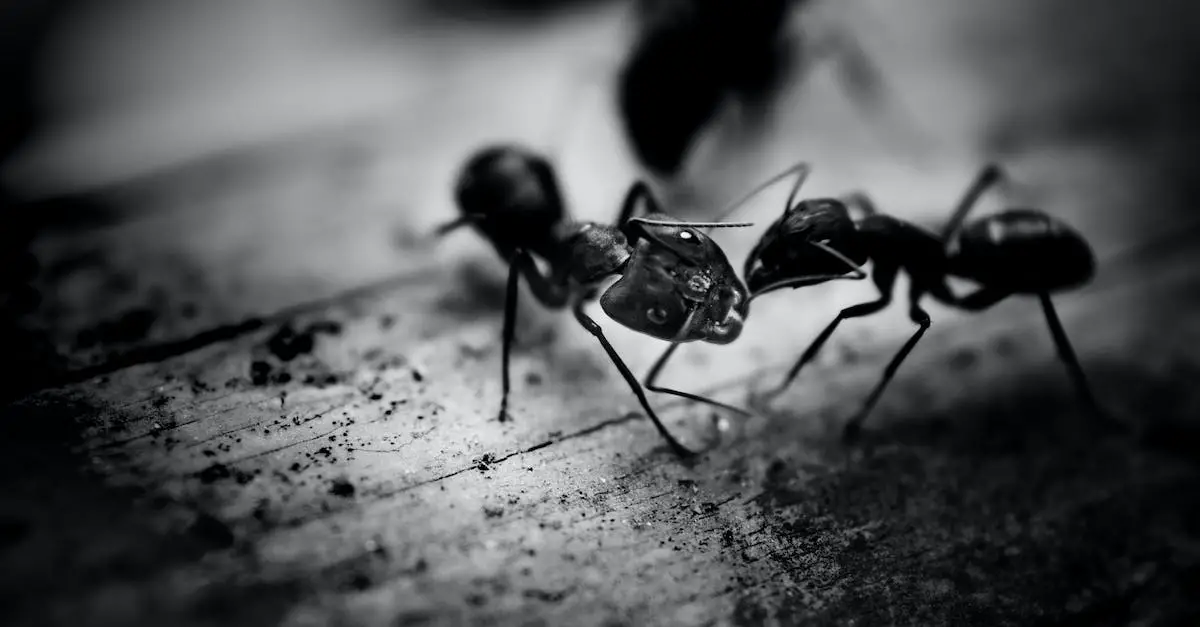
It’s time to talk about applying pesticides: the last resort for preventing ants from invading your home. Don’t get me wrong – I’m no fan of insecticides, but sometimes they’re the only way to eliminate persistent ant infestations.
- Start by identifying the type of ant you’re dealing with. Different species of ants require different types of pesticides.
- Choose your pesticide wisely. Read the label carefully and ensure you use the correct product for the job.
- Wear protective gear when applying pesticides. I would never joke about this – follow the manufacturer’s instructions to the letter.
- Remember to keep pets and children away from the area while applying pesticides.
- Make sure you apply the pesticide in the right areas. Ants typically follow a path, so you’ll want to target that area.
- Once you’ve applied the pesticide, clean up any remaining residue.
Applying pesticides is a tricky business, so make sure you’re following all the rules and regulations.
Monitoring the Status of Your Home
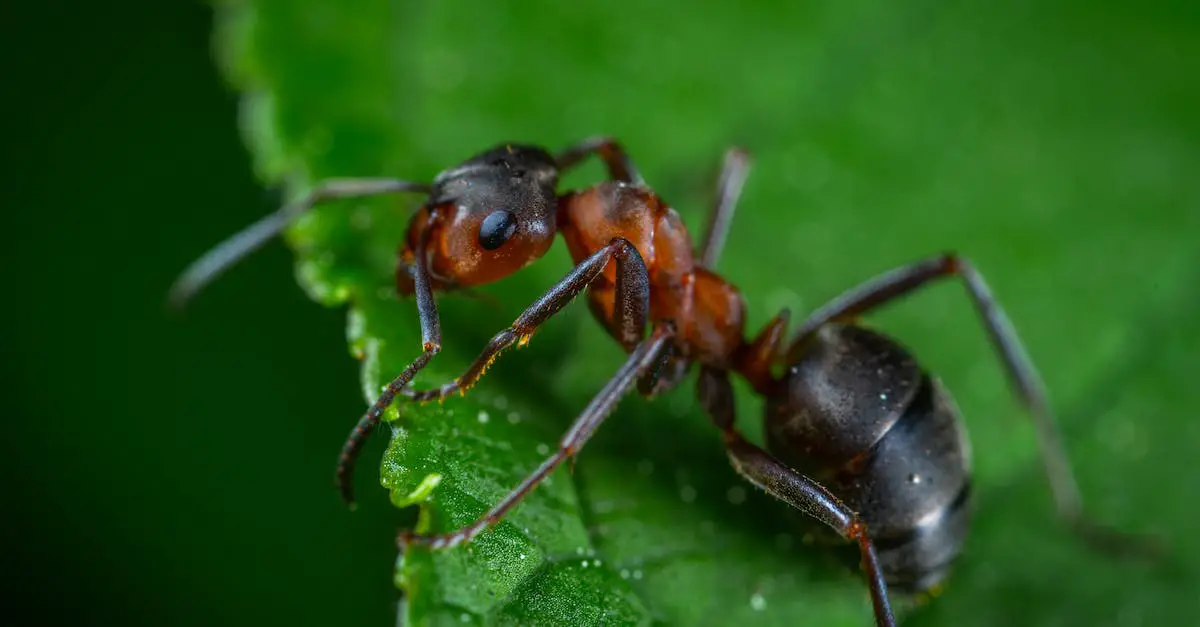
Regularly monitoring the status of your home is key to preventing ants from invading. You’ll want to keep an eye out for any new entry points and block them off immediately. You might even want to set up a few traps and see what kind of little critters come out of hiding!
Check for Cracks or Holes
Check the walls and foundation of your home. Look for cracks or holes that ants could use as entry points. If you find any, use some caulk or foam sealant to fill them in.
Check Windows and Doors
Ants like to come in through windows and doors, so check for gaps or cracks. Caulk or weather stripping can be used to block off these entry points.
Keep an Eye Out for Trails
If you start to notice ants scurrying around your home, they could be looking for food. Keep an eye out for any trails and clean up any spilled food or crumbs.
Use Traps
Setting up traps can be a great way to see if ants are trying to enter your home. Place them near windows, doors, and your home’s foundation.
Check the Exterior of Your Home
Make sure to keep the exterior of your home free of any debris that could provide ants with a place to hide. Keep the grass trimmed and remove any dead plants or leaves.
Schedule Regular Pest Control Inspections
Regularly inspecting your home by a pest control expert is a great way to detect any ant problems before they become an issue.
Following these steps and checking for any signs of ants can help prevent them from invading your home.
Conclusion
Thank you for taking the time to read this article and learn about how to prevent ants from invading your home. As you can see, there are several steps you can take to ensure that your home remains ant-free. From keeping food tightly sealed and out of reach of the ants to using natural ant repellents, there are plenty of ways to keep the eight-legged pests away from your property.
So, with that being said, I say this: don’t let the ants be the boss of you! Take charge of your home and keep those pesky critters from coming in. If all else fails, don’t hesitate to call the professionals.


